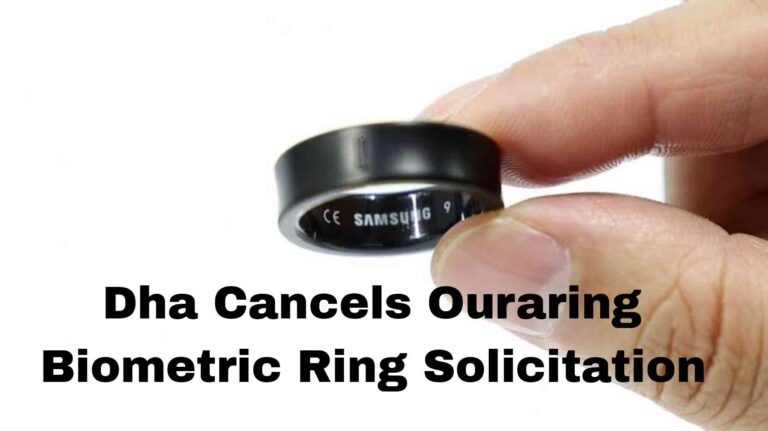
Delta Fitness Authority: Why This Certification is Reshaping Fitness in 2025
Remember that time you walked into a gym, overwhelmed by conflicting advice? One trainer swears by keto, another by fasted cardio, and a third insists you need cryotherapy just to function. It’s enough to make anyone want to retreat to the couch. That chaos? It’s exactly why the Delta Fitness Authority (DFA) emerged. Forget fleeting TikTok trends or bro-science passed down like folklore. The DFA is rapidly becoming the North Star for credible fitness standards, uniting trainers, gym owners, and everyday exercisers under a banner of evidence-based practice.
Born from a 2022 consortium of exercise scientists, veteran trainers, and rehab specialists frustrated by industry fragmentation, the DFA isn’t just another certificate to hang on the wall. It’s a rigorous, evolving framework designed to cut through the noise. Think of it as a “Good Housekeeping Seal” for fitness – but backed by peer-reviewed research and real-world application. By 2025, over 12,000 professionals globally have earned DFA accreditation, and major chains like FitLife Studios now mandate it for hiring.
So, why should you care? Whether you’re a weekend warrior, a PT building your brand, or a gym owner battling retention, the DFA impacts your results. This isn’t about elitism; it’s about creating a baseline of trust. When you see that DFA badge, you know the advice you’re getting won’t waste your time – or risk your knees. Let’s unpack how this movement is making fitness safer, smarter, and surprisingly more human.
What Exactly IS the Delta Fitness Authority?
At its core, the Delta Fitness Authority is a non-profit credentialing body. But labeling it just “certification” undersells its ambition. The DFA sets comprehensive standards for fitness knowledge, practical coaching skills, and ethical conduct. Unlike older models testing rote memorization, DFA candidates undergo scenario-based assessments. Picture a trainer explaining complex biomechanics to a stressed new mom using simple analogies, or adapting a workout for someone with hypertension – that’s the DFA benchmark.
Three pillars define the DFA philosophy: Adaptability, Evidence, and Accessibility. “Adaptability” means protocols aren’t one-size-fits-all; trainers learn to pivot based on individual needs, injuries, or even mood. “Evidence” mandates that methodologies root in current sports science – no more recommending spot reduction (debunked decades ago!). “Accessibility” pushes for inclusive programming, considering factors like cost, equipment access, and cultural relevance. A 2024 industry survey showed DFA-certified trainers had 40% higher client retention, largely due to this personalized, no-nonsense approach.
Confused how it differs from NASM, ACE, or other certs? The DFA complements them. Many trainers pursue it after foundational certs as a mark of advanced, practical mastery. Dr. Lena Rodriguez, a sports physiologist on the DFA advisory board, puts it bluntly: “Existing certs teach you the ‘what.’ DFA certifies you on the ‘how’ and ‘why’ in messy reality. Can you build rapport? Can you critically assess a flawed study? That’s what separates technicians from true coaches.”
The Burning Problems the DFA Solves
The fitness industry’s pre-DFA era wasn’t pretty. Instagram influencers peddling dangerous “30-day shreds,” trainers with weekend certifications prescribing advanced Olympic lifts to beginners, gyms prioritizing sales over safety – sound familiar? This Wild West landscape eroded public trust. A 2023 study found 68% of gym newcomers felt intimidated or misled by conflicting information, directly impacting adherence.
Injury rates told a grimmer story. Poorly guided exercisers accounted for a staggering 37% of physiotherapy referrals for non-sport injuries, often due to improper form or overzealous programming. Gyms faced liability nightmares, while ethical trainers struggled to stand out amidst the noise. Client “churn” was rampant, with the average member quitting within 8 months. The financial and human cost was unsustainable.
The DFA tackled this head-on by standardizing competence, not just knowledge. Their certification exams include live client simulations observed by assessors. Trainers must justify exercise choices using current research, demonstrate empathetic communication, and modify plans on the fly – skills glaringly absent in many quick-cert programs. For consumers, it created a desperately needed trust signal.
How the Delta Fitness Authority Actually Works (It’s Not Just a Test!)
Becoming DFA-certified isn’t a weekend Zoom crash course. It’s a demanding, multi-stage process designed to filter for true professionals:
-
Prerequisites: A foundational cert (e.g., NASM, ACSM) + 500+ logged coaching hours.
-
Core Curriculum: 120+ hours of advanced modules covering biomechanics, behavioral psychology, nutrition fundamentals (scope-aware!), and business ethics. Delivered via hybrid learning (self-paced + live virtual labs).
-
Practical Assessment: The infamous “DFA Gauntlet” – a 3-hour live session where candidates coach mock clients with complex needs (e.g., diabetic retiree wanting to garden pain-free, time-crunched exec with chronic shoulder pain). Assessors grade adaptability, cueing clarity, and safety.
-
Ethics & Business Exam: Covers client boundaries, sales transparency, and scope of practice.
But the DFA’s work doesn’t stop at certification. They enforce strict continuing education (CEU) requirements – 30 hours annually, with at least 10 focused on emerging research. Slack off, and your credential lapses. They also run a public “Verify a Pro” portal, letting consumers check a trainer’s status and any disciplinary actions (yes, certifications can be revoked for ethics breaches!).
For gyms, the DFA offers Facility Accreditation. This audits everything: equipment maintenance schedules, trainer credential verification processes, cleanliness protocols, and inclusive programming options. Accredited gyms display a prominent DFA seal and report 28% higher member satisfaction scores according to 2025 DFA industry data.
Why Fitness Pros Are Racing to Get DFA-Certified
Beyond the credibility boost, the DFA unlocks tangible career advantages. DFA trainers command higher rates – often 25-40% more per session than non-certified peers in the same market. They also report easier client acquisition. “Listing ‘DFA Certified’ on my profile was like flipping a switch,” says Marco Silva, a personal trainer in Chicago. “Inquiries doubled within a month. Clients specifically mention seeking out the DFA badge because they’re tired of guessing who’s legit.”
Gym owners see the value too. Facilities with 60%+ DFA-certified staff qualify for lower liability insurance premiums – a massive operational saving. Recruitment becomes smoother, as the DFA badge attracts serious career trainers, not hobbyists. Perhaps most crucially, member retention improves. Clients staying 12+ months jump significantly when programming is led by DFA pros, reducing costly turnover.
The DFA also fosters community. Their exclusive Pro Network connects certified trainers for mentorship, job boards featuring vetted opportunities (no shady commission-only traps!), and regional workshops on cutting-edge topics like AI-powered form analysis or trauma-informed coaching – skills future-proofing careers.
How the Delta Fitness Authority Benefits YOU (Yes, You!)
Think the DFA is just insider baseball for fitness pros? Think again. As a consumer, it directly shapes your gym experience and results:
-
Safety First: DFA trainers excel at injury prevention. They know how to regress exercises, spot red flags, and won’t push you into risky moves for social media clout.
-
Personalization That Works: No cookie-cutter plans. DFA methodology demands understanding your life, goals, limitations, and preferences. That knee pain? They’ll adapt. Hate burpees? They’ve got alternatives.
-
Evidence-Based Guidance: Cut through supplement hype and fad diets. DFA pros ground advice in science, explaining the “why” clearly without jargon.
-
Transparency & Trust: Clear pricing, defined scope (they won’t pretend to be dietitians or physios!), and ethical sales practices are baked into the DFA code.
DFA Impact: Consumer Benefits at a Glance
| Aspect | Traditional Trainer | DFA-Certified Professional |
|---|---|---|
| Program Design | Often generic templates | Highly personalized, adaptive plans |
| Injury Focus | Reactive (fix if hurt) | Proactive prevention strategies |
| Communication | May use complex jargon | Explains concepts simply & clearly |
| Scope Clarity | May overstep (e.g., diets) | Strict adherence to defined role |
| Results Focus | Short-term “wins” | Sustainable, long-term health gains |
Finding a DFA pro is easy. Use their “Find a DFA Pro” tool on their official site, filtering by location, specialty (e.g., pre/post-natal, strength, mobility), and even languages spoken. Look for the digital badge on trainer bios or gym websites – it’s your shortcut to quality.
The Future is Adaptive: Where DFA is Heading Next
The DFA isn’t resting. Their 2025 roadmap is ambitious, focusing heavily on technology integration and global accessibility. Expect AI-powered coaching assistants (vetted by DFA, of course!) that help trainers analyze movement patterns from smartphone videos, providing deeper insights between sessions. They’re also piloting subsidized certification pathways in underserved communities globally, recognizing fitness equity is crucial.
Another major push is specialty tracks. While the core DFA cert covers broad competence, advanced certifications in areas like Athletic Aging, Metabolic Health Coaching, and Mental Performance Integration are launching. These address the nuanced needs of booming demographics like active seniors and those managing chronic conditions through exercise.
Perhaps most exciting is the DFA’s push into corporate wellness partnerships. They’re working with Fortune 500 companies to develop DFA-approved workplace fitness programs, moving beyond step challenges to truly impactful, data-driven health initiatives that reduce burnout and healthcare costs. As Dr. Rodriguez states, “The DFA’s vision is a world where evidence-based movement is accessible, safe, and enjoyable for every body, everywhere. We’re just getting started.”
Conclusion: The Delta Fitness Authority – More Than a Badge, It’s a Movement
The Delta Fitness Authority represents a seismic shift – a move away from fitness as a confusing, sometimes predatory, landscape toward one grounded in science, ethics, and genuine human connection. For professionals, it’s a career-defining credential that signals mastery and care. For gyms, it’s a blueprint for sustainable success built on trust. And for you, the exerciser? It’s peace of mind. It’s knowing the person guiding your health journey has met the highest bar for competence and integrity.
The next time you research a trainer or evaluate a gym, look for the Delta Fitness Authority seal. It’s not just a logo; it’s a promise of quality, safety, and results done right. In a world drowning in fitness noise, the DFA is the signal worth tuning into. Your health deserves nothing less.
Delta Fitness Authority FAQs: Your Questions, Answered Simply
Q: Okay, but is this DFA thing actually legit? Or just another money grab?
A: Totally valid skepticism! The DFA is a non-profit. Fees cover rigorous assessment development, proctors, research updates, and maintaining the “Verify a Pro” system. Unlike some quick certs, they publish pass/fail rates (consistently tough!) and have an independent ethics board. Major medical associations and university exercise science programs endorse it – it’s the real deal.
Q: How much does it cost a trainer to get DFA certified? Is it crazy expensive?
A: It’s an investment, no sugarcoating. The full certification process typically ranges between $1,800-$2,500 USD in 2025, including materials, exams, and first-year membership. However, many pros see a return via higher session rates within months. Payment plans and some employer sponsorships are common. Think of it like a master’s degree for your coaching skills.
Q: Can I ask my current trainer if they’re DFA certified? Will they get offended?
A: PLEASE ask! Any professional worth their salt won’t be offended; they’ll appreciate you caring about their qualifications. If they get defensive or dismissive? That’s a red flag itself. Use the DFA’s “Verify a Pro” tool if you want to double-check independently.
Q: My gym doesn’t have DFA trainers or accreditation. Should I switch?
A: Not necessarily! Many excellent trainers are working towards it or operate ethically without it yet. Talk to the manager! Ask why they aren’t DFA-accredited or supporting trainer certification. Is it cost? Awareness? Their answer will tell you a lot about their priorities. If they dismiss its importance, consider if that aligns with your values.
Q: Does the DFA cover nutrition advice? I always get confused about what trainers can say.
A: This is HUGE! The DFA is crystal clear: Certified trainers can give general nutrition info (e.g., “Protein helps muscle repair,” “Hydration is key”). They CANNOT prescribe diets, treat eating disorders, or give meal plans implying medical therapy. That’s for RDs (Registered Dietitians). DFA pros strictly follow this scope – it’s heavily emphasized and enforced. They’ll refer you to an RD when needed.






